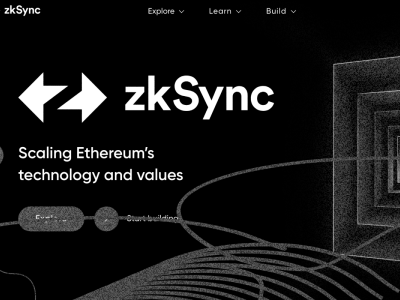Before writing this article, I spoke with colleagues from other agencies, customers, managers and line staff. A salary increase system turned out to be a challenge for everyone. Many companies would be happy to adhere to some system. However, they do not understand how to set it up clearly, transparently and fairly. I will tell you about our method. If you like it, implement these practices in your companies.
How to Effectively Motivate Developers

What are the problems in salary increase systems now?
Companies often use one of three approaches to increasing salaries. They are simply indexing for everyone, a subjective non-systemic increase for individual employees or the KPI method. All of them are controversial.
Indexing
Indexation or planned increase is the easiest way to raise salaries I have ever seen. There are rates for different positions. Then, salaries increase once for a while by a certain amount regardless of the results.
I believe it is an inefficient approach:
- It is not clear how much the salary increase should be. Perhaps, you can consider the official inflation rate. But, the problem is that people will not feel the difference and will not understand that they earn more.
- There is a risk of conflicts. Following this approach, you will face a situation where one of the employees worked harder and developed faster. However, the company increased salaries equally for proactive and less enthusiastic employees. People will feel the injustice. So, it may provoke conflicts, resentment and a toxic atmosphere.
However, this system has significant advantages, such as simplicity and low implementation cost.
Subjective salary increase
Many companies do not have any salary increase system at all. The manager makes decisions about the growth of salaries spontaneously. For example, it can happen if the employee asked for a promotion himself or the manager noticed a work achievement. This approach has many disadvantages:
- When there is no system, you risk not paying attention to the person with improved skills who deserves a promotion.
- Justice remains the main issue. Employees will ask why one person got a pay rise while another did not.
- Some shy people work hard but don't know how or are embarrassed to ask for a pay raise. However, they will begin to burn out if you do not increase their salaries or support their professionalism. It affects both employees and the business badly.
The subjective salary increase system has only negative long term consequences. When there are no clear and transparent criteria, the only thing you can do is evaluate employees intuitively. This approach is supposed to consider only work achievements. Those employees, who develop and take on more responsibilities gradually, may become underestimated. At the same time, their approach results in productive and high-quality performance without burnout. So, they deserve a salary increase.
KPI
There are salary increase systems based on performance measurement. You can apply this system in different areas. I believe it works best in a conveyor business type when the team solves many similar tasks. But there are some problems: But there are some problems:
- Employees work not for quality but for quantity. What is the reason to develop and do complex projects if you can complete a dozen simple tasks?
- There is a high risk of burnout, as monotonous work without development leads to degradation and boredom.
- It is not suitable if the developer faces new complex challenges in projects. Finally, the employee solves the problem, but the assessment is poor, as he does not complete a certain amount of tasks a day.
In addition, it is challenging to build an objective KPI system. Measuring employee efficiency through the number of completed projects, solved tasks or tracked time leads to controversial and non-transparent requirements. As a result, they will eventually depend on the subjectivity of individual managers.
A transparent and well-designed salary increase system is necessary for everyone. Employees get a clear plan and a social contract. If you want more income, you should make some effort. The management sees the employees developing in the team instead of turning toxic due to the sense of injustice.
How we designed a salary increase system that motivates people to develop
MetaLamp agency started as a "club" of enthusiastic developers. We did good on a freelance, and clients began to trust us for large commercial projects. As in many similar cases, the main problem of such a company is development. We need many developers, and we take people of different levels. However, they should understand how, where and why to develop professionally.
We solved this problem through the Developer Roadmap and designed several grades of developers, depending on their knowledge and skills.
So, there are three main grades: junior, middle and senior. We have subdivided them into "sub-grades". Each has a list of technical and non-technical questions. The employee understands what he needs to learn to get a higher level.
Of course, we came up with a simple solution. We applied the rate for one working hour to these grades. Employees of all levels know what they need to learn and who to address to earn more. It solves several issues at once:
- Shy colleagues no longer feel the injustice. If they want more income, they need to study for a new grade.
- Employees can plan and influence income growth. If you want to get a promotion faster, you can make much effort, work hard, study a lot and quickly get to the desired salary. Also, you can learn gradually and take the grade exam later. On average, our record is ten months to middle-1 from the beginner and four months to junior-3.
- It motivates developers to improve their skills and boost their professional level. The employees are ready to learn a lot, and that's great.
- The system introduces transparent game rules. Although we still risk having conflicts and subjectivity, the system reduces it significantly. Moreover, only colleagues, who have already passed the grade test, can examine other developers.
We have been building such a system gradually since the company was founded. It had been operating for about five years. However, the faster we grew, the more challenges we faced. At one moment, we realized that it was time for changes.
What are the disadvantages of salaries and grades interdependence?
If you rely only on the Developer Roadmap for salary increases, you face some issues.
The developer has experience and competencies, but he did not take a formal grade exam. Some experienced developers have been working with various technologies for a long time. They are professionals in their field and have a lot of practical skills. Nevertheless, they do not go for the grade exams because they are very busy with complex tasks. At the same time, they cannot spend time and energy studying in the evenings.
So, their competencies already meet the requirements of a higher grade, but we do not increase their salaries. Of course, we could solve this problem through a salary increase without passing the exam grade as an exception. But then it would undermine the trust in the system among other developers.
As a result, we have a formal bureaucracy. The conditions seem transparent, but they are limited and do not fit everyone.
There is a lot of theory but a lack of practice. Here is one more issue. Some specialists in our company took grade exams very quickly. These developers often studied theory at home. They passed the grade exam successfully and became middle-developers. However, they did not have enough expertise. These guys worked on one or two projects and knew many things in theory. At the same time, they did not have an opportunity to put them into practice.
Lack of performance assessment. The Developer Roadmap evaluated competencies but not productivity. The employee could work slowly, perform fewer project tasks, but could study. According to the Roadmap, he got a pay rise. Another developer completed more tasks but did not have enough time to learn new things. So, we could not increase his salary rate.
The system considers only technical competencies. Of course, they are essential for an engineer. We must understand complex technologies to work with various projects. However, there are such criteria as work experience, additional responsibility initiative, English proficiency and soft skills. All these standards are relevant and have a dramatic impact on performance. You can be a talented engineer. Nevertheless, if you are bad at soft skills and English, it is a problem for you, the company and the team.
However, we tried to upgrade the system and introduced a rate range for every grade to address the weaknesses. For example, at the “3-junior” level, a person can get 500-700 rubles instead of 500 roubles per hour.
It is a bit subjectively but allowed us to increase salaries based on the same work experience. When a developer has recently upgraded to a new level, he gets 500 rubles. After six months, we raise the rate to 700 rubles without a grade exam.
Also, we introduced a system of benefits for liability. For example, if a developer started to “team lead” and coped with it successfully, we paid him a fixed amount per month. Although, the Roadmap does not include it.
Finally, the system is not perfect and requires additional solutions and modernization. Nevertheless, it seems that transparency and trust can compensate for the shortcomings. The game rules are the same for everyone, and the promotion path is clear. This task was the most significant for us.
Five years later, we decided to reinvent our salary increase system. We wanted it to remain fair and transparent to everyone. At the same time, it should consider that our team has grown. So, the problems have become a significant challenge, too. We mainly went beyond the Developer Roadmap, but we tried to keep a focus on development. I will tell you about this system in the following article.
Summary
The salary increase system based on the Developer Roadmap will not operate effectively in all teams. It will be beneficial if you have a business with a startup spirit. You are a team of enthusiasts who strive to develop and accept a salary increase system based on skills development. The main thing is that the business model supports this approach, and you have projects that require solving complex tasks. Our experience shows that such a system is a great way to stimulate employee growth. A spirit of self-development, a team atmosphere, complex challenges and management support are precious. However, money is also a strong motivation for development.
Learn more news, cases and interesting stories in our Telegram channel.

More articles by this author

La Migliore Offerta: The Impact of Cryptocurrency on Business and Economy in 2023
Roman Shtih
CEO Metalamp


CoW Protocol Batch Auctions: How Orderbook, Autopilot, and Solvers Ensure Fair Trading
Alexei Kutsenko
Solidity developer

CoW DAO and CoW Protocol: How Intent-Based Trading and MEV Protection Transform DeFi
Alexei Kutsenko
Solidity developer

Smart Contracts Aren’t Deployed Yet, but Addresses Already Exist: Why CREATE2 (EIP-1014) Matters
Roman Yarlykov
Solidity developer



How to Fork and Launch Uniswap V3 Smart Contracts: A Practical Guide
Alexei Kutsenko
Solidity developer


Bittensor: Overview of the Protocol for Decentralized Machine Learning
Alexei Kutsenko
Solidity developer

Aerodrome Protocol: How a MetaDEX on Base Blends Uniswap, Curve, and Convex
Roman Yarlykov
Solidity developer
Articles

Algebra Finance: Modular DEX-as-a-Service with Plugins, Dynamic Fees, and Uniswap Compatibility
Roman Yarlykov
Solidity developer
Articles

ERC-6909: Minimal Multi-Token Interface and Why It Matters for Ethereum Projects
Pavel Naydanov
Solidity developer

Uniswap v4 Explained: Hooks, Singleton Architecture, Dynamic Fees & ERC-6909
Pavel Naydanov
Solidity developer


AI Agents: How AI Agents Conquered the Crypto Market + Key Projects
MetaLamp editorial team

AI and Blockchain: Key Takeaways from 2024 and Industry Forecasts for 2025
MetaLamp editorial team

The main events in The Open Network (TON) ecosystem in 2024
MetaLamp editorial team

A Guide to EigenLayer: How the ETH Restaking Protocol Attracted $15 Billion TVL
MetaLamp editorial team

The Open Network 2025: figures, events, analytics, forecasts
MetaLamp editorial team

Overview of Blockchain Bridges: Interaction Between Different Networks
Roman Yarlykov
Solidity developer




5 Rules from the Founder: How an EdTech Project Can Attract Investments. The Case of the Online School “Logopotam”
Alexey Litvinov
CEO and founder of the online school Logopotam

Is it worth launching a project on Solana, despite the hype around memes?
MetaLamp editorial team

Mintless Jettons on TON: A New Feature Making TON Projects Even More Attractive
MetaLamp editorial team

3 reasons to choose a ready-made solution for mini-apps in Telegram instead of developing from scratch
Dmitriy Shipachev
CEO at Finch


Think of it like a hamster for traffic: how to attract an audience with a Telegram clicker game
Nico Bordunenko
Business Analyst at MetaLamp



Which Rollup to Choose for Your Project: Arbitrum, Optimism, Base, ZK EVM, and Others
MetaLamp editorial team


How We Adapted a Mobile RPG for Blockchain and Enabled NFT Sales
MetaLamp editorial team

How TON Payments Enable Fee-Free Micro-Transactions and Their Uses
MetaLamp editorial team

What You Need to Know Before Starting a Project on TON
MetaLamp editorial team

What is the Meaning and Benefits of MVP for Startups in 2024?
MetaLamp editorial team




RWA explained: Opportunities of Real-World Assets in 2024
MetaLamp editorial team


Creating a Crypto Transaction Widget for Google Sheets: The CPayToday Journey
MetaLamp editorial team


How Early-Stage Startups Can Stay on Track with Development
MetaLamp editorial team

How to Attract Investments: Insights from Successful 2023 Startups
Mykola Pryndiuk
Social Media Specialist

When and How to Find a Technical Partner for Your Startup
MetaLamp editorial team




Understanding the Necessity of Account Abstraction in the Crypto World
Pavel Naydanov
Solidity developer

Ways to Speed Up Development: Outstaffing Pros and Cons
MetaLamp editorial team



Freelancer, Agency, or Contract Employees: Who to Hire for Startup MVP Development
Yana Geydrovich
Partnership manager at MetaLamp

From Corporate Blog to Brand Media: The Birth of Metalamp Magazine
Mykola Pryndiuk
Social Media Specialist

La Migliore Offerta: The Impact of Cryptocurrency on Business and Economy in 2023
Roman Shtih
CEO Metalamp






How We Use Our Training Program to Recruit Plutus Engineers
Svetlana Dulceva
The Education Program Supervisor

Discover Why IT Companies Appreciate Our Junior Developers
Svetlana Dulceva
The Education Program Supervisor







How We Designed a No-Cost Education Program for Web Development
Sergey Cherepanov
CTO MetaLamp
Articles














